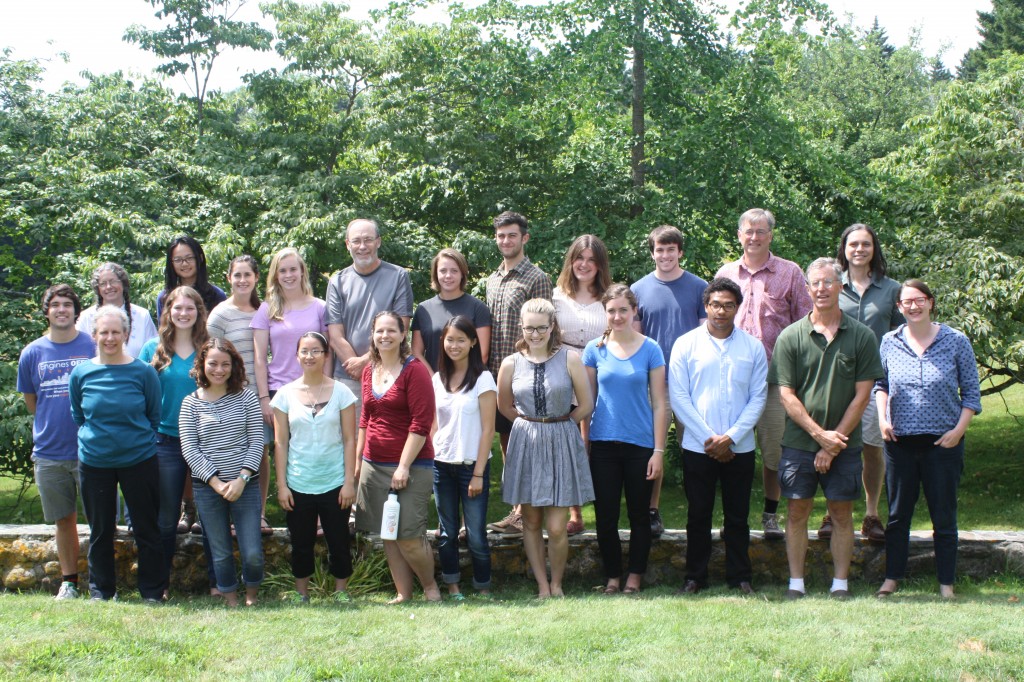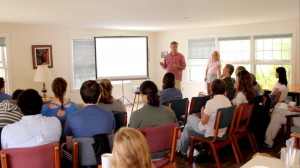
After six weeks of conducting their own research projects, the Coastal Studies Center’s summer fellows were eager to share their research with each other and visiting audience members at the Coastal Studies Summer 2014 Research Symposium.
With research projects ranging from studies of green crabs eating habits to lobsters’ cardiac responses to specific peptides, the short presentations given by 15 students and 7 faculty members span 7 different academic departments, showcasing the varied nature of Coastal Studies fellowships.
Fellowships that support student research in the coastal sciences include the Rusack Coastal Studies Fellowship, the Doherty Coastal Studies Research Fellowship, the Freedman Summer Research Fellowship, and the NSF Faculty Student Research on Computational Sustainability. Research topics ranged from studies that use marine organisms as models for understanding fundamental biological processes – locomotion in sea stars, for instance, or cardiac neural control in lobsters – to investigations of how coastal organisms and ecosystems are responding to environmental shifts such as rising ocean temperature and acidity.

In his introductory remarks, Coastal Studies Center director and Associate Professor of Biology David Carlon described not only the ecological changes that are taking place in the Gulf of Maine but also the changes in store for the Center and its on-site Marine Lab.
“The lab is growing already,” Carlon said, with new dry- and wet-lab spaces scheduled to open in time for classes this fall, not to mention the pending acquisition of a new research vessel that will join the R/V Laine at the Coastal Studies Center dock. In the works is a marine science semester targeted at juniors and seniors, planned for fall 2015.

Following Carlon’s introduction, faculty members from Biology, Chemistry, Earth and Oceanographic Science, and Environmental Studies described their research and shared perspectives from their areas of expertise, while students supported by summer research fellowships reported on progress they’ve made so far and previewed their plans for the rest of the summer, opening up the floor for questions after each talk.
These students and faculty are making use of field sites throughout Maine and beyond, with a concentration of activity at the Coastal Studies Center itself, only twelve miles from Bowdoin’s campus – where they can take advantage not only of aquarium tanks and other laboratory facilities, but also the natural lab that is Harpswell Sound.